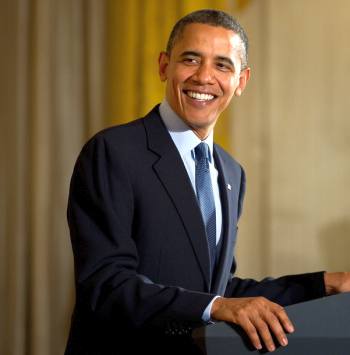 | « Back to article | Print this article |

Here's what the 44th President of the United States can teach you about making money.
January 26, 2015 will go down as a red letter day in the history of India, for it was a Republic Day celebration with a difference. For the first time ever, an American President graced the occasion as the chief guest. While all has been said about what the US President’s visit means for our nation, Obama as a world leader does strike a different chord with us Indians, perhaps because of his pedigree as a self-made man, much like our current Prime Minister.
Here are a few lessons that you can learn from President Obama that will help you manage your money better.
We witnessed great bonhomie between our Prime Minister Narendra Modi and Barrack Obama during his recent visit to the nation. And like the first time he visited India right after he took over the mantle as the 44th President of the United States, Obama charmed his way into the hearts of Indians this time as well. Unlike other world leaders who have typically preached from a pulpit, Obama is a man of the soil. He is at home in Asian nations like ours for he is someone who has seen struggle up close and personal and fought his way to the top fair and square. This is perhaps the one reason that endears him to us as a nation for most of us in this country are far from being born with a silver spoon in our mouths. Here are the money lessons from Obama you can apply to your finances:
1. Listen up hard
One of the reasons that Obama strikes a chord whenever he gives a speech is because he is a great orator. And to be a good orator, one has to begin by being a good listener. Obama is a man who believes communication is a two way street and for all his major successes he has attributed credit to those who have inspired him.
Similarly, when you want to invest in the stock markets, you must keep your eyes and ears open to soak up all the information around you, so that you can decode the information that is relevant to you.
Try and follow the successful investors, but do not ape them blindly. Be inspired from them and if you must apply their techniques tweak them to your benefit.
2. Have a clear and consistent vision
Right from the time he was relatively unknown and made speeches in the Democratic National Convention in the year 2004, he hinged his speeches on a single word vision “Change”. This was to become the fulcrum of his presidential campaign and ultimately brought him victory, not once but twice!
Similarly, you must have a clear financial plan, to begin with, when you begin your investment journey. Have your goals chalked out clearly and invest with dogged determination to meet them. There will temptations to sway at times, but do not give in to them, for meeting your financial goals will not only help you but your family in the long run.
3. Take tough decisions when the need arises
Barrack Obama took over as the President of the United States, at a time when it was going through one of the worst financial crises it had seen. Needless to say he had to take some tough decisions to get the economy back on track. He however, kept a straight face and did not cow down under pressure and carried out his actions in a manner that he thought was best for his country.
Similarly, when it comes to your portfolio, there will be times when you will be called upon to take some tough actions. More often than not macro economic conditions will determine what actions you need to take. At such times you must not deter and take those decisions to trim your portfolio or reshuffle your portfolio to allocate your assets towards more gainful investments.
These decisions will not be the easiest to take, but you must have the confidence to go through with them.
4. Pay off your debts as aggressively as you can
Obama has often acknowledged that it had taken him a good thirteen years to pay off his law school loans. He graduated from the Law School at Havard in 1991 and it was only in 2004 that he paid of his loans fully.
To students or recent graduates the lesson is clear.
Do not ramp up your lifestyle as soon as you graduate from school. As a rule of thumb one should take off 50 per cent of their after-tax increase in pay every time they get a raise to pay off debt. The remaining should be invested to get the best inflation-adjusted returns.
Instead of getting jealous when you see people driving around in snazzy cars, tell yourself it’s more important to be debt free than spend money on materialistic things that you think will make you happy.
Thus as you can see, we as common folk may not be able to comprehend the politics of world leaders, but we can sure be inspired from the way the way they conduct themselves and apply them to our personal lives.
The author is a credit expert with 10 years of experience in personal finance and consumer banking industry and another 7 years in credit bureau sector. Rajiv was instrumental in setting up India's first credit bureau, Credit Information Bureau (India) Limited (CIBIL). He has also worked with Citibank, Canara Bank, HDFC Bank, IDBI Bank and Experian in various capacities.
Photograph: Courtesy, NASA HQ PHOTO